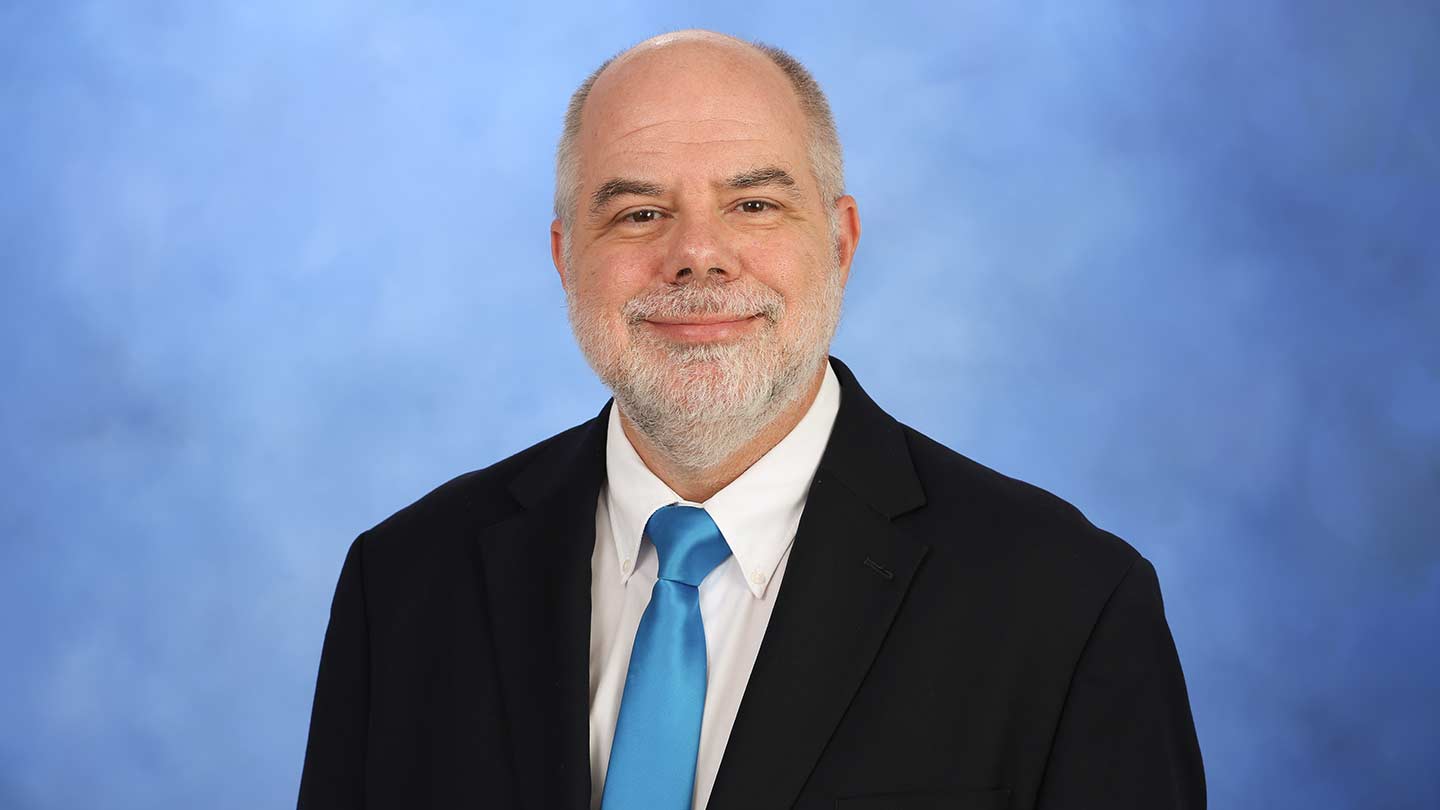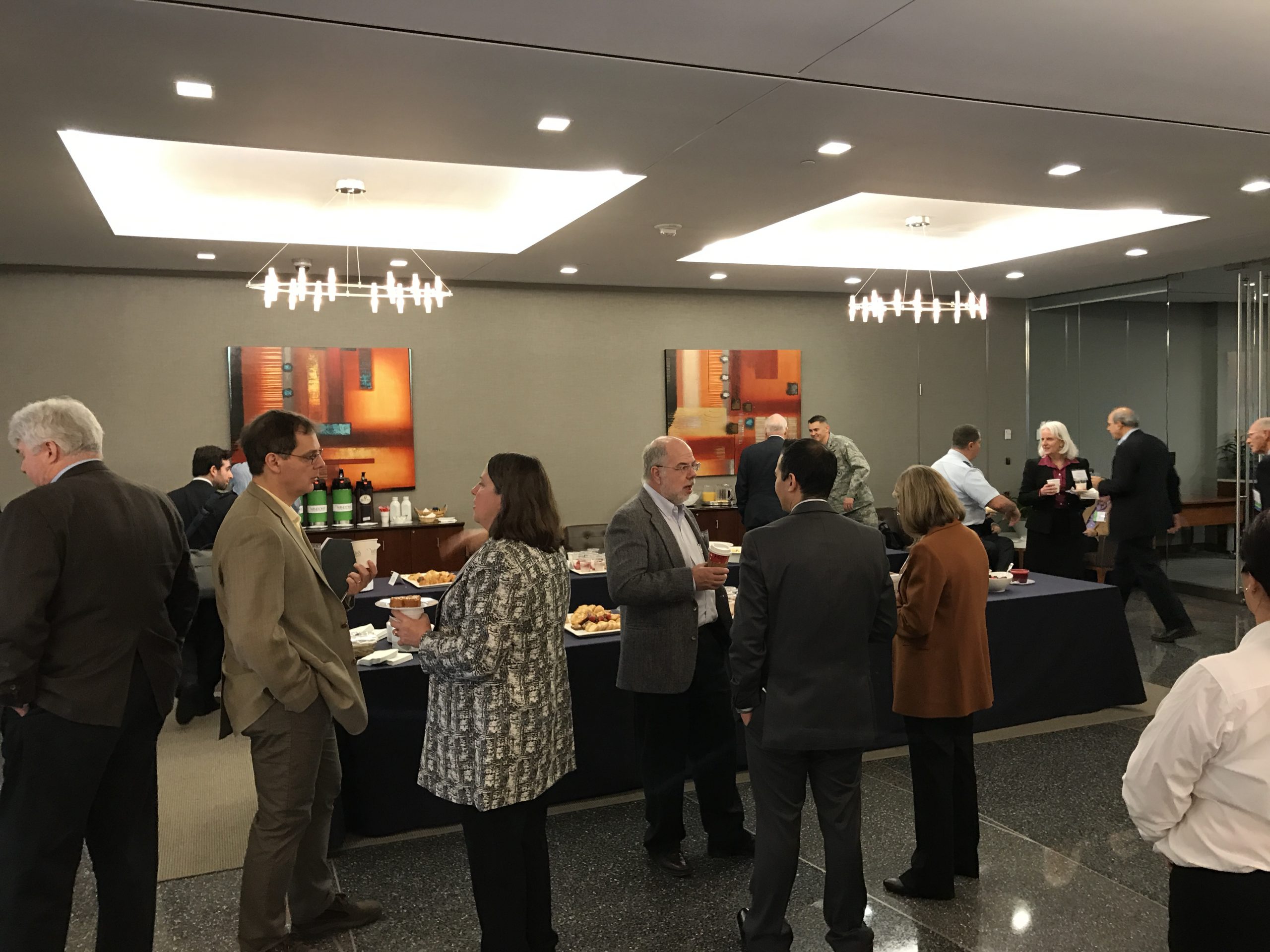A Profile in Systems Engineering Excellence and Personal Leadership

For anyone who has had the pleasure of working with Dr. Paul Collopy, Nortcutt’s words will ring true. According to colleague Tom McDermott, SERC CTO, Paul is great at “leading by following,” making teams function more effectively not through formal leadership roles, but by supporting and encouraging his team members. Dr. Jon Wade, UC San Diego, said, “Paul’s the kind of person that when he’s on the team, the team plays better.” Paul has earned a reputation not only for excellent work and keen insight, but also for being the type of person who loves to learn and makes every team he works on better than it otherwise could have been.
Paul started his career in electrical engineering, earning a BS in the subject from Stanford University before taking a job at Procter & Gamble, where he designed distributed control systems. From there, Paul moved to Thiokol where he installed distributed programmable logic controllers. And while working in a variety of roles at General Electric, Paul not only advanced his understanding and contributions to control design, he also earned his MS and began his PhD journey at Stanford in Engineering-Economics Systems.
Paul has continued to evolve throughout his career. He spent over ten years building a consulting practice, DFM Consulting, pioneering value-driven design (VDD) as a framework for system design practice that emphasizes system-level optimization, rather than system-level constraints. VDD is intended to be practical, joining Paul’s knowledge of engineering theory and his industry experience of how engineers work in practice. This kind of pragmatism is a hallmark of Paul’s work throughout his career. He was later the executive director for the Value-Driven Design Institute in Urbana, Illinois and the deputy director for the Center for Systems Studies at the University of Alabama in Huntsville and the executive director for the Value-Driven Design Institute in Urbana, Illinois. He went on to become the Program Director for the Engineering and Systems Design program and the Systems Science program at the National Science Foundation.
Paul also served as a Professor and Chair in the Department of Industrial & Systems Engineering and Engineering Management (ISEEM) at the University of Alabama in Huntsville for many years, where he combined the perfect balance of challenge and inspiration to develop many students and fellow faculty. Dr. Taylan Topcu, a former student and current mentee of Paul’s, said, “Regardless of how busy he was, his door was always open to his students.”
“I met Paul when I was a graduate student at my first academic conference,” said Dr. Zoe Szajnfarber, who has worked with Paul for many years. “My advisor introduced me to him with a warning that he would ask tough questions. He immediately started to grill me on the presentation I’d just made, and as I defended my research design choices, he kept pushing. I think I missed the next session, but it ended up being one of the most productive spontaneous research conversations I’ve ever had. I also remember how he managed to convey care and joy, even as he critiqued the work. At the time, I didn’t appreciate how rare that combination was, but as I’ve matured in my career, I always think of him as a model of the kind of scholar and advisor I strive to be.”
Though he deeply values education, he equally values the practice of systems engineering. Dr. Val Sitterle, Georgia Tech Research Institute, said, “I’ve heard from several people that Paul talked them out of pursuing a PhD if they did not really need and desire it for the work they wanted to do. Paul is amazing at counseling people to pursue a doctorate for the right reasons.” Sitterle continued, “Paul never associates the value of a person with their degree. Whether or not you have a PhD, what kind of background you have – it is completely irrelevant to him. That is very refreshing.”

Paul’s contributions to the field of systems engineering are legion. His research portfolio is both broad and deep: a testament to his keen mind and continued openness to learning. He has published dozens of journal articles, conference papers, and book chapters and several of these publications have hundreds of citations. Paul’s work on improving technical risk using decision trees provided more rigor in the process and makes risk analysis and management a much more quantitative and holistic activity.1 And in an era where artificial intelligence (AI) and its implications are top of mind not only in the US Department of Defense but around the world, his collaborations with fellow SERC researchers have provided insight into what it means to actually systems engineer and validate AI.2,3
Paul has also highlighted critical shortcomings in the theoretical underpinnings of systems engineering4 and proposed approaches to alleviate them. In 2016, he co-led a collaborative workshop between the SERC, the National Science Foundation (NSF), and the International Council on Systems Engineering (INCOSE) that explored the research required to improve and develop systems theory. The workshop focused on two activities that are foundational for systems engineering – abstraction and elaboration – and developed common definitions, understanding of the relationships between the two, and recommended approaches for improving systems theory.5 Of Paul’s contributions to the field, Topcu said, “When I met Paul, I was coming off the industry full of unanswered questions and frustrated with our lack of theoretical understanding of systems engineering as a strategic discipline. I was extremely fortunate to cross paths with Paul. He is a true intellectual, educator, and a champion of systems engineering, who wasn’t afraid to ask the difficult questions.”
In addition to his many collaborations with SERC colleagues, Paul has been a key player in the SERC for over a decade. In 2009, Paul participated in his first SERC research project, which focused on the value of flexibility. This task developed a taxonomy for evaluating whether existing methods, processes, and tools appropriately valued flexibility and developing new tools for valuing flexibility. In 2014, Paul joined the SERC Research Council where he provided guidance and input to the SERC’s research portfolio around transformation of systems engineering and systems management. Paul also supported a SERC task that engaged with science and technology and engineering leaders across DoD’s laboratories and engineering centers to identify discernable patterns in research priorities and opportunities for impact. This task identified five clear areas of research need and continues to inform updates to the SERC’s overall research portfolio.6
Dr. Dinesh Verma, SERC Director, has worked with Paul throughout his tenure with the SERC and said, “In many ways he represents the ethos of the SERC – open and collaborative – but with a focus on excellence and impact. He was a founding member of the Research Council and served on it until recently. We owe him a debt of gratitude for his contributions – intellectual and social – towards helping make the SERC a national resource for systems research.” In 2020, Paul as presented with the SERC Founder’s Award, which celebrates contributions to and championing of the SERC.
Fiercely intelligent, Paul has been described as a joy to work with and someone who always provided a positive influence. Dr. Jon Wade, University of California San Diego, said, “Paul has an amazing sense of humor. The sort of sense of humor that makes you smile and feel good about things, even when they’re in the worst shape you could imagine. He has that sort of playful side to him.” Sitterle stated, “Paul always looks for a constructive approach” to deal with challenges. Moreover, Sitterle added, “Paul has this gift of connecting. He talks to you – not at you, past you, or around you, but to and with you. That’s part of what makes working with him such a true joy. You know you are valued.” His humor and integrity have made a strong impact on all who have worked with him. Wade stated, “He’s somebody you can go to, and you’ll get his real opinion about how he feels. He’s going to tell you what he believes and why he believes it. He’s that person who can be your source of truth in a way that is uplifting.” Topcu described Paul’s personal influence, “Through his bold personality and charm, Paul inspires many. He also excelled at, and personally enjoyed, exercising his position of power to open doors for underrepresented populations in STEM and fostering change towards a positive cultural and academic environment.”
In his personal life, Paul is extremely devoted to and proud of his family, his daughters Alejandra and Arianne and his amazing wife, Pam. Paul has recently retired from academia and has become an Emeritus member of the SERC Research Council. He continues working on projects he finds fun and interesting, however, such as a book he is writing with his daughter Arianne. Topcu summarized how many of us feel about Paul, “Overall, he is an amazing human being, a great family man, and is the epitome of what a true leader should be.”
Paul’s legacy – through his teamwork, insightful contributions, and his inspirational influence that permeates a diverse body of colleagues and former students – continues to have profound impact across the field.
Paul, a sincere thank you for not only your brilliant mind and theoretical and practical contributions to the field, but for your wit and fierce friendship.
- Paul D. Collopy and Peter Hollingsworth.“Value-Driven Design.” Journal of Aircraft 48(3). May 2012. https://doi.org/10.2514/1.C000311
- Paul D. Collopy. “Managing Technical Risk.” IEEE Aerospace Conference, Big Sky, Montana, March 8-12, 2015. https://doi.org/10.1109/AERO.2015.7119093
- Jon Wade, Jorge Buenfil, and Paul Collopy. “A Systems Engineering Approach for Artificial Intelligence: Inspired by the VLSI Revolution of Mead & Conway.” INCOSE INSIGHT. 23(1):41-47. March 2020. https://doi.org/10.1002/inst.12284
- Paul Collopy, Valerie Sitterle, and Jennifer Petrillo. “Validation Testing of Autonomous Learning Systems.” INCOSE INSIGHT. 23(1):48-51. March 2020. https://doi.org/10.1002/inst.12285
- Paul D Collopy. “Systems Engineering Theory: What Needs to be Done.” IEEE Systems Conference, Vancouver, British Columbia, April 13-16, 2015. https://doi.org/10.1109/SYSCON.2015.7116807
- Taylan G. Topcu, Konstantinos Triantis, Richard Malak, and Paul Collopy. “An Interdisciplinary Strategy to Advance Systems Engineering Theory: The Case of Abstraction and Elaboration.” Systems Engineering. 23(6):673-683. 18 August 2020. https://doi.org/10.1002/sys.21556
- Dinesh Verma, Paul Collopy, and Spiros Pallas. 2018. Systems Engineering Research Needs and Workforce Development Assessment. Hoboken, NJ: Systems Engineering Research Center, Stevens Institute of Technology. SERC-2018-TR-102. https://sercproddata.s3.us-east-2.amazonaws.com/technical_reports/reports/1529521319-A013_SERC%20RT%20174_Technical%20Report%20SERC-2018-TR-102.pdf
